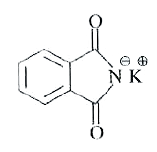Which of these is the weakest base?
NaOH
KOH
To determine which of the given hydroxides is the weakest base, we need to analyze the basicity of each hydroxide based on their properties.
1. Identify the Hydroxides: The hydroxides mentioned are sodium hydroxide (NaOH), potassium hydroxide (KOH), calcium hydroxide (Ca(OH)₂), and zinc hydroxide (Zn(OH)₂).
2. Understand Basicity: The basicity of a hydroxide in an aqueous solution is influenced by its solubility and the dissociation constant (Kb). The higher the solubility and Kb, the stronger the base.
3. Classify the Hydroxides:
- Sodium hydroxide (NaOH) and potassium hydroxide (KOH) are alkali metal hydroxides and are known to be strong bases.
- Calcium hydroxide (Ca(OH)₂) is an alkaline earth metal hydroxide and is also a strong base, though not as strong as NaOH and KOH.
- Zinc hydroxide (Zn(OH)₂) is a transition metal hydroxide and is known to be a weak base. It can also act as amphoteric, meaning it can behave as both an acid and a base.
4. Compare the Basicity:
- Sodium hydroxide, potassium hydroxide, and calcium hydroxide are all strong bases due to their high solubility and Kb values.
- Zinc hydroxide, on the other hand, has lower solubility and a lower Kb value, making it a weak base.
5. Conclusion: Among the given options, zinc hydroxide (Zn(OH)₂) is the weakest base.
Final Answer:
Zinc hydroxide (Zn(OH)₂) is the weakest base.
---
- Sodium hydroxide (NaOH) and potassium hydroxide (KOH) are alkali metal hydroxides and are known to be strong bases.
- Calcium hydroxide (Ca(OH)₂) is an alkaline earth metal hydroxide and is also a strong base, though not as strong as NaOH and KOH.
- Zinc hydroxide (Zn(OH)₂) is a transition metal hydroxide and is known to be a weak base. It can also act as amphoteric, meaning it can behave as both an acid and a base.
- Sodium hydroxide, potassium hydroxide, and calcium hydroxide are all strong bases due to their high solubility and Kb values.
- Zinc hydroxide, on the other hand, has lower solubility and a lower Kb value, making it a weak base.
Zinc hydroxide (Zn(OH)₂) is the weakest base.
Topper's Solved these Questions
Similar Questions
Knowledge Check
Which of these is the strongest base?
A B
B C
C D
D
Which of the following is the weakest Bronsted base?
A B
B C
C D
D
Which of the following is the weakest base:-
View SolutionWhich of the following is the weakest base ?
View SolutionWhich of the following is the weakest Bronsted base?
View SolutionWhich is the weakest base among the followings ?
View SolutionWhich of the following is the weakest Bronsted base?
View SolutionThe values of dissociation constant of some bases are given below. Which is the weakest base ?
View Solution
